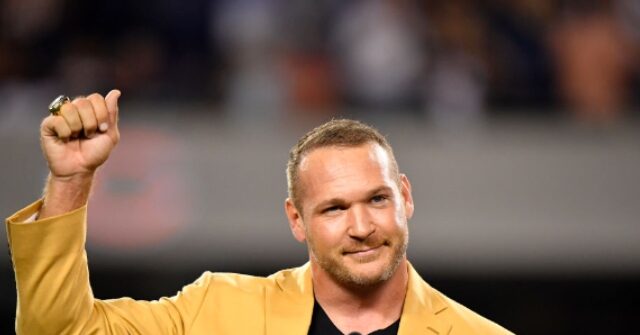Brian Urlacher, the Pro Football Hall of Famer and former Chicago Bears linebacker, recently shared his perspective on the evolving attitude of athletes toward supporting Donald Trump. During an interview with Fox News, Urlacher revealed that the climate around political expression in sports is shifting, with more athletes feeling empowered to openly advocate for Trump. He specifically cited a trend seen during recent NFL games where players showcased their support through celebratory displays, dubbing it the “Trump dance,” which signifies a growing camaraderie among Trump supporters in the sports arena.
Historically, he observed that many athletes hesitated to express their political beliefs due to fears of potential backlash or “cancel culture.” Urlacher acknowledged that this hesitance has diminished as many figures in sports have begun to voice their support for Trump without the same level of fear of criticism. “People were scared for a while,” Urlacher reflected, attributing this change to a sense of security now felt by Trump supporters in the public eye. The transition indicates a newfound confidence among athletes, signaling a potential shift in how political discourse is navigated within sports culture.
Urlacher’s endorsement for Trump isn’t new; he has been vocal in his support since 2016 and continues to advocate for the former president’s initiatives as he marches toward a potential 2024 candidacy. Urlacher believes that many in the sports community share his sentiments of approval, particularly given the accomplishments he attributes to Trump during his previous term. The former athlete expressed that this support is largely driven by the belief that Trump has effectively executed his responsibilities and will continue to do so in another term, suggesting that excitement for his policies is rising among current athletes.
Throughout his impressive 12-year NFL career, Urlacher distinguished himself as a formidable player, ending with accolades including eight Pro Bowl selections, and amassing high career tackles and sacks. After his retirement from professional football in 2012, he entered the Hall of Fame in 2018, cementing his legacy in the sport. Urlacher’s post-football life has included significant moments, such as a personal meeting with Trump in the Oval Office, a result of Trump’s act of clemency toward Urlacher’s brother, Casey, who faced federal issues related to sports gambling.
The interactions between sports figures and political figures have often been complex, making Urlacher’s outspoken support for Trump notable. The increasing visibility of athletes expressing similar political views suggests a potential realignment in how celebrity and politics converge. As Urlacher continues his advocacy for Trump, he embodies a shift where athletes may feel more comfortable aligning with political platforms that resonate with their beliefs, defying previous tendencies toward silence on such matters.
Overall, Urlacher’s insights reflect broader societal changes regarding political expression in sports, highlighting a new era where athletes more boldly share their convictions. This evolution indicates a potential transformation in the intersection of sports and politics, setting the stage for more dynamic discussions around athletes’ roles in public discourse as they navigate their professional environments alongside their personal beliefs.

